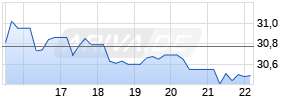
Spirit AeroSystems Reports First Quarter 2020 Results
PR Newswire
WICHITA, Kan., May 6, 2020
WICHITA, Kan., May 6, 2020 /PRNewswire/ --
First Quarter 2020 Results Driven by 737 MAX Production Suspension & COVID-19
- Delivered 324 shipsets compared to 453 shipsets in the first quarter of 2019
- Revenue of $1.1 billion
- Earnings per share (EPS) of $(1.57); Adjusted EPS* of $(0.79)
- Cash from operations of $(331) million; Free cash flow* of $(362) million
Recent Events
- Took actions to preserve the health and safety of workforce including processes aligned with CDC guidelines to work with any exposed individual on the necessary quarantine period and the process to return to work
- Acted to preserve liquidity:
- Reduced cash dividend to a penny per share
- Continued suspension of the share repurchase program
- Received $225 million advance from Boeing; deferred repayment of $123 million advance from Boeing to 2022
- Deferred over $120 million of capital expenditures
- Amended credit agreement to allow for bond issuance and to provide additional flexibility in light of market conditions
- Raised $1.2 billion in senior secured second lien notes on April 17
- Paid down in full the $800 million revolver on April 30
- Implemented cost reduction actions:
- Reduced 2,800 employees in Wichita, Kansas and 400 employees in Oklahoma in January; eliminated 200 contractor positions
- Announced further reduction of 1,450 employees in Wichita, Kansas; additional reductions at other Spirit locations to align to lower production levels
- Initiated a voluntary retirement program for 850 hourly and salaried workers
- Extended IAM and IBEW union contracts for three years
- Reduced pay for all U.S.-based executives by 20 percent until further notice
- Initiated a 21 calendar-day furlough of production workers and managers supporting Boeing programs in Wichita, Kansas and Oklahoma
- Implemented a four-day work week for salaried workforce at Wichita, Kansas facility until further notice
- Reached agreement with Boeing on 737 MAX production of 125 units in 2020
- Announced temporary production partnership with Vyaire to produce ventilators
Spirit AeroSystems Holdings, Inc. [NYSE: SPR] reported first quarter 2020 financial results.
| Table 1. Summary Financial Results (unaudited) | | ||
| | 1st Quarter | | |
| ($ in millions, except per share data) | 2020 | 2019 | Change |
| | | | |
| Revenues | $1,077 | $1,968 | (45%) |
| Operating (Loss) Income | ($168) | $233 | ** |
| Operating (Loss) Income as a % of Revenues | (15.5%) | 11.8% | ** |
| Net (Loss) Income | ($163) | $163 | ** |
| Net (Loss) Income as a % of Revenues | (15.1%) | 8.3% | ** |
| (Loss) Earnings Per Share (Fully Diluted) | ($1.57) | $1.55 | ** |
| Adjusted (Loss) Earnings Per Share (Fully Diluted)* | ($0.79) | $1.68 | ** |
| Fully Diluted Weighted Avg Share Count | 103.7 | 105.3 | |
| | | | |
| ** Represents an amount equal to or in excess of 100% or not meaningful. |
"The aerospace industry and Spirit are facing unprecedented disruption and uncertainty from the continued 737 MAX grounding and COVID-19 pandemic. We have taken appropriate steps to improve the safety of our team in our manufacturing facilities. We have also executed a number of cost reduction activities to align our cost structure to the lowered rates of production. In addition, we have taken several actions to preserve liquidity. Our recent bond offering provides additional liquidity to help Spirit manage through these challenging times," said Spirit AeroSystems President and Chief Executive Officer Tom Gentile.
Revenue
Spirit's first quarter of 2020 revenue was $1.1 billion, down from the same period of 2019, primarily due to the 737 MAX production suspension directed by Boeing that began on January 1, 2020. Deliveries decreased to 324 shipsets during the first quarter of 2020 compared to 453 shipsets in the same period of 2019, including Boeing 737 MAX deliveries of 18 shipsets compared to 152 shipsets in the same period of the prior year. (Table 1)
Spirit's backlog at the end of the first quarter of 2020 was approximately $42 billion, down $1 billion from the previous quarter, with work packages on all commercial platforms in the Boeing and Airbus backlog.
Earnings
Operating loss for the first quarter of 2020 was $(167.5) million, down compared to operating income of $233 million in the same period of 2019. As a result of Boeing's 737 MAX production suspension that began on January 1, 2020, Spirit recognized lower margin driven by significantly less deliveries, excess capacity costs of $73.4 million, and restructuring expenses of $42.6 million for cost-alignment and headcount reductions. In addition, Spirit recognized abnormal costs of $25.4 million resulting from the COVID-19 Boeing production suspension that began in March 2020. Further, Spirit recognized a non-cash expense of $69.2 million resulting from the voluntary retirement program (VRP) offered during the first quarter of 2020. In addition to the expenses described above, Spirit recognized forward loss charges of $19.7 million in the first quarter of 2020 related to the Boeing 747, 787, Airbus A350, and BR725 programs.
First quarter EPS was $(1.57), compared to $1.55 in the same period of 2019. First quarter 2020 adjusted EPS* was $(0.79), excluding the impacts of planned acquisitions, restructuring costs and the VRP offered during the first quarter of 2020, compared to $1.68 in the same period of 2019, adjusted to exclude the impact of the planned Asco acquisition. (Table 1)
Cash
Cash from operations in the first quarter of 2020 was $(331) million, down from $242 million in the same quarter last year, primarily due to negative impacts of working capital requirements largely driven by supplier payments made following the 737 MAX production suspension, partially offset by $215 million received related to the February 2020 memorandum of agreement with Boeing. Free cash flow* in the first quarter of 2020 was $(362) million, down compared to $201 million in the same period of 2019. The Company's $800 million revolver remained drawn at the end of the quarter. Cash balance at the end of the quarter was $1.8 billion. (Table 2)
On April 13, 2020, Spirit entered into an amendment to its Second Amended and Restated Credit Agreement. The primary purpose of this amendment was to permit Spirit to raise second priority secured indebtedness and provide flexibility to account for market conditions.
On April 17, 2020, Spirit raised $1.2 billion aggregate principal amount of 7.5% senior secured second lien notes due 2025 in a private offering. Spirit used the proceeds to pay its full revolver of $800 million on April 30, 2020, and will use the remaining $400 million for general corporate purposes.
In connection with the closing of the notes offering, the commitments under Spirit's senior unsecured $375 million short-term delayed draw term loan facility, dated as of February 24, 2020, were canceled in full and the facility was terminated.
* Non-GAAP financial measure, see Appendix for reconciliation
| Table 2. Cash Flow and Liquidity (unaudited) | | | |
| | 1st Quarter | | |
| ($ in millions) | 2020 | 2019 | Change |
| | | | |
| Cash from Operations | ($331) | $242 | ** |
| Purchases of Property, Plant & Equipment | ($31) | ($41) | (24%) |
| Free Cash Flow* | ($362) | $201 | ** |
| | | | |
| | April 2, | December 31, | |
| Liquidity | 2020 | 2019 | |
| Cash | $1,834 | $2,351 | |
| Total Debt | $3,031 | $3,034 | |
| | | | |
| ** Represents an amount equal to or in excess of 100% or not meaningful. |
Subsequent Events
The first quarter 2020 financial results do not contemplate the impacts of the recently announced lower production rates by Boeing and Airbus. The Company is currently evaluating the potential impacts to the Boeing 787 and Airbus A350 programs. Based on preliminary assessments, the Company expects to recognize incremental forward losses in the second quarter of 2020 of approximately $70 million to $90 million on the Boeing 787 program, and $15 million to $20 million on the Airbus A350 program. As a result of the uncertainty that exists regarding customers' specific production rates and duration for such rates, and the Company's actions it may take to recalibrate its cost structure in response to decisions our customers make, the amount of forward losses the Company will recognize in the second quarter of 2020 may be materially different than the ranges indicated above.
2020 Outlook
Given the continued uncertainty surrounding the impacts of the Boeing 737 MAX grounding and COVID-19 pandemic, Spirit will not be providing guidance at this time.
Segment Results
Fuselage Systems
Fuselage Systems segment revenue in the first quarter of 2020 decreased 48 percent from the same period last year to $552 million, primarily due to lower production volumes on the Boeing 737 program resulting from the production suspension directed by Boeing that began on January 1, 2020. Operating margin for the first quarter of 2020 decreased to (15.7) percent, compared to 13.0 percent during the same period of 2019, primarily due to lower profit recognized on the Boeing 737 program due to excess capacity costs of $51.2 million with significantly less deliveries, restructuring expenses of $30.1 million for cost-alignment and headcount reductions, and abnormal costs of $15.3 million resulting from the COVID-19 Boeing production suspension that began in March 2020. In the first quarter of 2020, the segment recorded pretax $(4.0) million of unfavorable cumulative catch-up adjustments and $(13.2) million of net forward losses.
Propulsion Systems
Propulsion Systems segment revenue in the first quarter of 2020 decreased 54 percent from the same period last year to $225 million, primarily due to lower production volumes on the Boeing 737 program resulting from the production suspension directed by Boeing that began on January 1, 2020. Operating margin for the first quarter of 2020 decreased to (2.4) percent, compared to 19.7 percent during the same period of 2019, primarily due to lower margin recognized on the Boeing 737 program due to excess capacity costs of $15.8 million with significantly less deliveries, restructuring expenses of $8.8 million for cost-alignment and headcount reductions, and abnormal costs of $6.2 million resulting from the COVID-19 Boeing production suspension that began in March 2020. In the first quarter of 2020, the segment recorded pretax $(1.5) million of unfavorable cumulative catch-up adjustments and $(3.1) million of net forward losses.
Wing Systems
Wing Systems segment revenue in the first quarter of 2020 decreased 29 percent from the same period last year to $291 million, primarily due to lower production volumes on the Boeing 737 program resulting from the production suspension directed by Boeing that began on January 1, 2020 as well as lower revenue recognized on the Airbus A350 program as a result of pricing terms. Operating margin for the first quarter of 2020 decreased to 4.7 percent, compared to 16.1 percent during the same period of 2019, primarily due to lower margin recognized on the Boeing 737 program due to excess capacity costs of $6.4 million with significantly less deliveries, restructuring expenses of $3.7 million for cost-alignment and headcount reductions, abnormal costs of $3.9 million resulting from the COVID-19 Boeing production suspension that began in March 2020, and pricing terms on the Airbus A350 program. In the first quarter of 2020, the segment recorded pretax $(2.7) million of unfavorable cumulative catch-up adjustments and $(3.4) million of net forward losses.
| Table 4. Segment Reporting (unaudited) | | ||
| | 1st Quarter Werbung Mehr Nachrichten zur Spirit Aerosystems Aktie kostenlos abonnieren
E-Mail-Adresse
Bitte überprüfe deine die E-Mail-Adresse.
Benachrichtigungen von ARIVA.DE (Mit der Bestellung akzeptierst du die Datenschutzhinweise) -1  Vielen Dank, dass du dich für unseren Newsletter angemeldet hast. Du erhältst in Kürze eine E-Mail mit einem Aktivierungslink. Hinweis: ARIVA.DE veröffentlicht in dieser Rubrik Analysen, Kolumnen und Nachrichten aus verschiedenen Quellen. Die ARIVA.DE AG ist nicht verantwortlich für Inhalte, die erkennbar von Dritten in den „News“-Bereich dieser Webseite eingestellt worden sind, und macht sich diese nicht zu Eigen. Diese Inhalte sind insbesondere durch eine entsprechende „von“-Kennzeichnung unterhalb der Artikelüberschrift und/oder durch den Link „Um den vollständigen Artikel zu lesen, klicken Sie bitte hier.“ erkennbar; verantwortlich für diese Inhalte ist allein der genannte Dritte. Andere Nutzer interessierten sich auch für folgende News | ||




